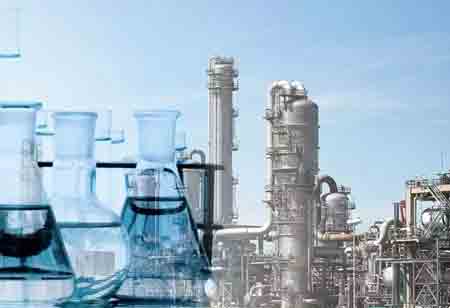Petrochemicals are chemical compounds derived from petroleum, natural gas, and coal.
FREMONT, CA: Petrochemicals are a vital part of the chemical industry, providing the raw materials for a wide range of products and applications. They are derived from petroleum, natural gas, and coal and are used to produce a variety of chemicals, plastics, and synthetic materials. Let's take a closer look at the significance of petrochemicals in the chemical industry and how they are used.
What Are Petrochemicals?
Petrochemicals are chemical compounds derived from petroleum, natural gas, and coal. They are the building blocks of the chemical industry, providing the raw materials for a wide range of products and applications. Some of the most commonly produced petrochemicals include:
1. Ethylene: Ethylene is a colorless gas that produces many chemicals, including plastics, synthetic fibers, and solvents.
2. Propylene: Propylene is a colorless gas that produces plastics, synthetic fibers, and other chemicals.
3. Benzene: Benzene is a colorless liquid that is used to produce a variety of chemicals, including plastics, synthetic fibers, and rubber.
4. Toluene: Toluene is a colorless liquid that is used to produce a variety of chemicals, including plastics, synthetic fibers, and solvents.
Uses of Petrochemicals
Petrochemicals are used to produce a wide range of products and applications, including:
1. Plastics: Petrochemicals are the raw materials used to produce a wide range of plastics, including polyethylene, polypropylene, and polyvinyl chloride (PVC). These plastics are used in various applications, including packaging, construction, and automotive parts.
2. Synthetic Fibers: Petrochemicals are also used to produce synthetic fibers, such as polyester and nylon. These fibers, along with clothing, upholstery, and carpets, are employed in various applications.
3. Solvents: Petrochemicals are used to produce a variety of solvents, such as ethanol, methanol, and acetone. These solvents are used in various applications, including cleaning products, paint thinners, and industrial processes.
4. Rubber: Petrochemicals produce synthetic rubber, which is used in various applications, including tires, hoses, and seals.
Challenges in the Petrochemical Industry
While petrochemicals play a critical role in the chemical industry, there are also several challenges that the industry faces. One of the biggest challenges is environmental sustainability. Petrochemicals are derived from fossil fuels, which are non-renewable resources. The extraction and processing of these resources can also have a significant environmental impact, including greenhouse gas emissions and pollution.
The petrochemical industry has invested in new technologies and processes to address these challenges to reduce its environmental impact. This includes the development of more efficient production methods, the use of renewable energy sources, and the implementation of waste reduction and recycling programs.
Conclusion
Petrochemicals are a critical part of the chemical industry, providing the raw materials for a wide range of products and applications. They are derived from petroleum, natural gas, and coal and are used to produce plastics, synthetic fibers, solvents, and rubber. While the industry faces challenges related to environmental sustainability, there is ongoing investment in new technologies and processes to reduce its impact. As the demand for these materials grows, the petrochemical industry will remain vital to the global economy.

